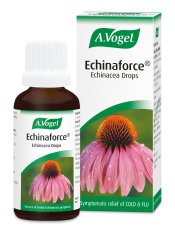The immune system in children compared to adults
The immune system of a child is not as strong that of an adult. Babies are born with an immature immune system. As they grow, so does their level of immunity and it reaches maturity in the early teenage years.
So how does a child’s immune system fight infection?
In the first days and months of life, immune system cells and infection fighting molecules called antibodies are passed from the mother to child via breast milk. This is nature’s way of keeping the infant as healthy as possible, and one of the many important reasons why one should breastfeed a baby if possible.
As children become older, they become exposed to more and more bugs. While it is painful to see your child ill with a cold and blocked nose, or even a fever, this is simply nature’s way of educating the young immune system.
This learning process takes many years and even when children are in nursery or the first years of school, they are still susceptible to colds, viruses and other infective illnesses. This is the reason that a room filled with children under the age of 10 is the perfect breeding ground for infection.
How do children's immune systems develop?
The immune system is made up of organs, tissues, cells and proteins. Its primary role is to detect and remove foreign substances which have entered the body.
In children, immune function works in the same way as in adults. However, the young, immature immune system takes a bit of time to learn what infective viruses look like.
So, if a child is exposed to a bug for the first time, the immune response is not as quick, or as strong as with a second infection by the same bug. This is the basic reason why a young child who has not had much ‘infection experience’ is more prone to infection. With age and time, more and more viruses will be seen and recognised, and the immune system will start to work better. This is the reason why we do not tend to pick up measles or chickenpox twice.
In the early months of life, a mother helps her child fight infection by passing her resistance on in breast milk. However, breastfeeding does not go on indefinitely – so, what can you do to help children stay healthy until their immune systems are fully developed?
Boosting your child's immune system
Whilst many would use the word ‘boost’, in scientific terms, what we are really talking about is strengthening the immune system. There are many practical and useful steps you can take to help the development of your child’s immune system:
1. Ensure plenty of rest – we all know what a fight it can be to get a child to bed, but early nights are a must for a growing child particularly when they have school the next day. On average, a child needs ten to fourteen hours sleep, preferably in a cool, dark room – and certainly away from the distractions of computers, tablets and mobile phones.
2. Fresh air is free – nature is our best remedy. It is free and is excellent for stimulating the immune system. Get children into the big outdoors – let them run, cycle, climb and explore. It is a huge playground waiting to be utilised.
3. Have fun with them – it can be a stressful and busy time bringing up a child but don’t pass your stress onto them. Children can get stressed to. Teach them how to relax and remember that ‘me’ time is important for a child too.
4. Have a family routine – children need a stable environment and creating a good family routine will help emotional security. Having meals, baths, stories and homework at set times can be extremely beneficial.
5. Reduce sugar – studies have shown that sugar suppresses immune function. There are no nutrients in sugar. When in the body, it requires nutrients to metabolise, which uses the minerals from your body. Sugar also stops your white blood cells from doing their job properly.
6. Hand hygiene – teach your child when and how to wash hands. This is not only before meals and after visiting the toilet – washing hands regularly will help to reduce the number of bugs picked up in the nursery or classroom. If water is not easily to hand, resort to using hand sanitisers.
7. Environment – a healthy environment in the home is beneficial to every child. Smoking is not only harmful to the smoker, it can also cause huge damage to the people who are around them. Cigarette smoke kills and irritates vital cells in the body and children are more susceptible to damage from smoke as they breathe faster. They also have a less developed natural defence system.
Immune-boosting snacks for kids
It is amazing to discover how beneficial fruit and vegetable are to our immune system. Foods such as broccoli, carrots, strawberries and oranges all contain vitamin C and are long known to improve immune function. They also provide a range of other vitamins and minerals.
Walnuts are also useful to the immune system – they contain omega fatty acids to assist in the fight against illness. Lean meats contain zinc, which along with protecting the immune system, also help to make the white blood cells stronger.
More than half of immune system cells lie in the gut. Prebiotic and probiotic foods such as L+ lactic acid from fermented foods as well as yoghurts have been shown to strengthen the immune system. This is one reason why antibiotics are to be avoided as much as possible – whilst they are undoubtedly useful, using them unnecessarily to treat a cold or flu means that your child can be even more susceptible to infection the next time round.
Children can be picky eaters, so it is important to find ways to get nutritious foods into them. A great technique for introducing a variety of wholesome, tasty and nutritious foods is to create fun lunchbox snacks and meals.
This is something you and your child can do together – and make it as bright, colourful and entertaining as you can. Children can have their fussy moments, so the wider the range of healthy and nutritious foods we can get them to enjoy, the better. Ideally they will want to show their friends and create even more taste sensations.
Here are some ideas:
- Vegetable sticks – such as carrots, peppers, cucumber, sweetcorn and celery. Try introducing them with a humous dip
- Raisins – an easy snack to offer in place of sweets
- Cheese – there are many varieties, so there should at least be one your child will approve of. Try cheese dippers (with breadsticks), cheese cubes and pickles (80’s style on a toothpick) or cheese sticks (cut from a block of cheese). This is also a good way of making sure your child gets more calcium
- Nuts – a small number of children are allergic to these, but for the majority, nuts are a very nutritious snack full of goodness. Many varieties are available. Walnuts are ideal, but almonds are beneficial too. Remember to be careful when giving nuts to a young child
- Fruit – any fruit is better than no fruit and with so many types to choose from, there cannot be an excuse for a child not to eat fruit. Children like to eat with their fingers so fruit kebabs can be a great way of getting to your five a day in a fun way
- Yoghurt – apart from probiotic properties, this is again a great way of getting more calcium into the diet. Avoid buying sweetened fruit flavoured yoghurts, but instead, add your own fruit to plain live yoghurt. A great idea is to freeze yoghurt for use as an ice-cream substitute
- Mini cakes – A good way of sneaking more fruit into a young diet – even better if your child has had a hand in making a simple recipe such as banana muffins.
Herbal remedies and supplements for children
To give your child's immune system a bit of extra support, you may wish to try some additional supplements or herbal remedies.
Echinacea is traditionally used to support the immune system, and a fresh extract of this herb can be found in our Echinaforce range. These products can be used by children over the age of 12. Many people find the chewable version most useful for kids because it has a great-tasting orange flavour!
Vitamin C is vital for immune function, and if you think your child isn't getting enough in their diet then you should try Nature-C, the A.Vogel vitamin C supplement. It is made from natural ingredients so is easily absorbed. It can be used by children 6 years and over.









